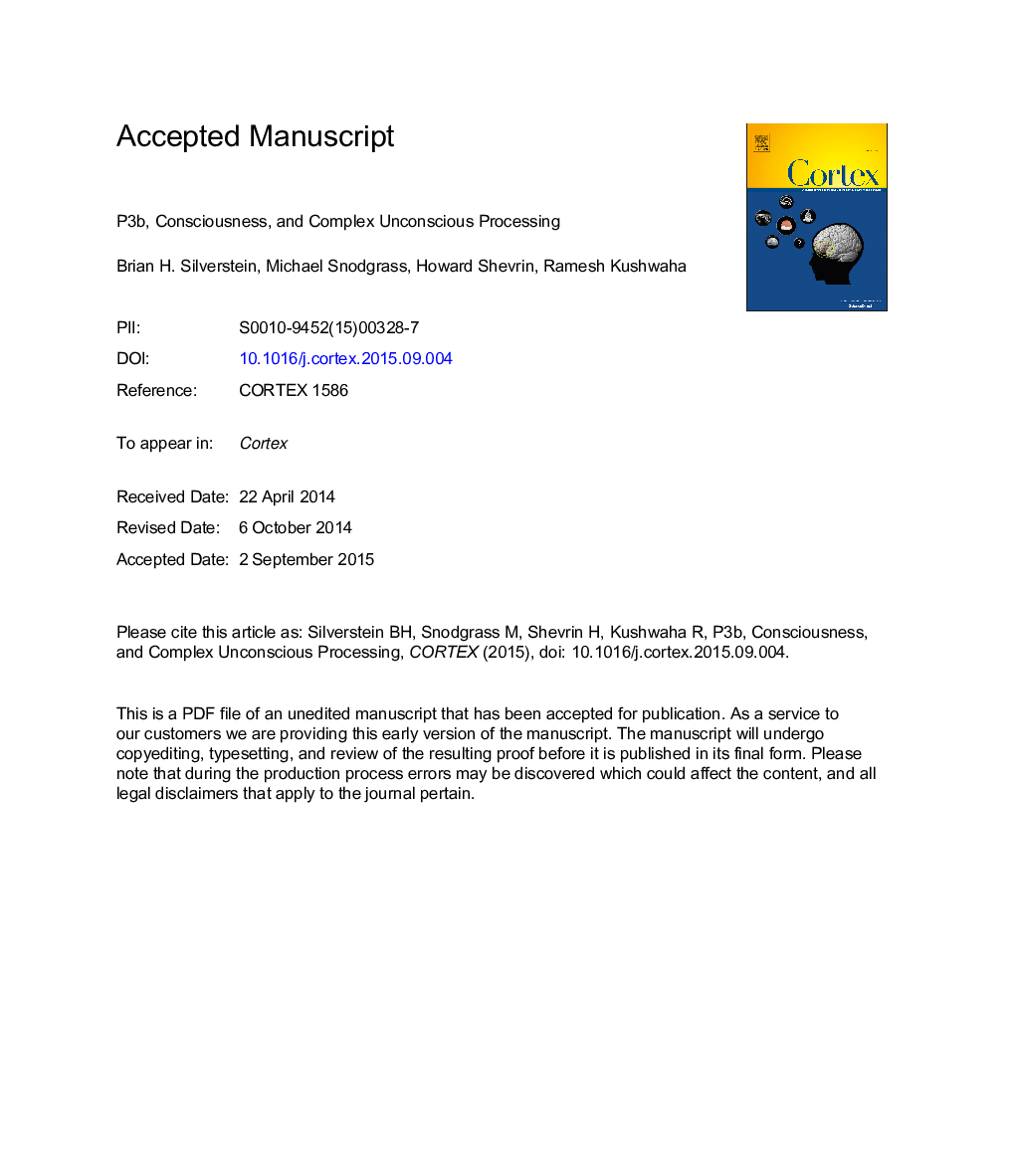| Article ID | Journal | Published Year | Pages | File Type |
|---|---|---|---|---|
| 7313707 | Cortex | 2015 | 42 Pages |
Abstract
How can perceptual consciousness be indexed in humans? Recent work with ERPs suggests that P3b, a relatively late component, may be a neural correlate of consciousness (NCC). This proposal dovetails with currently prevailing cognitive theory regarding the nature of conscious versus unconscious processes, which holds that the latter are simple and very brief, whereas consciousness is ostensibly required for more durable, complex cognitive processing. Using a P3b oddball paradigm, we instead show that P3b and even later, related slow wave activity occur under rigorously subliminal conditions. Additional principal component analysis (PCA) further differentiated the presence of both P3a and P3b components, demonstrating that the latter indeed occurred subliminally. Collectively, our results suggest that complex, sustained cognitive processing can occur unconsciously and that P3b is not an NCC after all.
Keywords
Related Topics
Life Sciences
Neuroscience
Behavioral Neuroscience
Authors
Brian H. Silverstein, Michael Snodgrass, Howard Shevrin, Ramesh Kushwaha,
